Unmapped, For Now
Guest author Rachel Beglin reflects on a rural Panamanian community’s quiet transformation through the eyes of a longtime observer
Words and images: Rachel Beglin
When I first encountered the small community of Boca de Lurá, it was not findable on Google Maps. In 2018, I moved to a place that was digitally unmarked territory—a rare kind of place in the 21st century, indeed an endangered landscape. I fear that soon, the whole world will be known, and every last precious place might have a parking lot and visitor center.
For now, Boca de Lurá remains a secret, though Google Maps has since found it.
The place is named, like so many places on Earth, for the landscape upon which it survives. Boca, the mouth, of the river Lurá, a river whose name’s origins are a mystery to its current Latin dwellers, a vestige of peoples before them.
I secretly love traditions that are carried on despite the myth being lost.
Boca de Lurá is located in central Panama, tucked deep inside of the volcanic land bridge between the two Americas, in a province called Coclé. Somehow, despite the isthmus famously boasting the shortest distance between the two oceans, Boca de Lurá feels far from both. The children there yearn not for the beach, with its mundane horizon of nothing but infinite sand. No, these kids would much rather play in the two rivers that run along either side of the dirt road. Rivers that swell brown in the rainy season, with all kinds of mysteries floating downstream from faraway communities, branches to swing and jump from, rocks to look out for. Compared to our stoic mother ocean, the rivers are playful and alive.
To this day, the best way to get directions in this community is to ask where a family lives relative to the river’s flow, even though the cars drive in the opposite direction. Oh, Modesto? He lives waaaay downstream. Jorge Luis? Allá arriba!
You would never guess the beach is nearby at all when you crouch under the crowded jungle canopy. Walking palms, coconut trees, cacao, coffee. Balo, ice cream bean, bananas, plantains. A thousand other trees that any Panamanian six-year-old could identify but any university ecologist would stumble over. The place is a great recycling plant; what falls to the forest floor is quickly sucked back up into the canopy. The toucans can be heard for kilometers.
Boca de Lurá is a place that bewilders my mind. What I once perceived to be the past is the present, while the present is still, of course, present. I mean criss-crossing timelines and upset history textbooks. I mean women thresh rice in great hand-carved wooden pilónes each morning and call their children in La Ciudad from their smartphones in the afternoon. Their children wear Yankees hats and ride retired US school buses covered in spray paint to and from their jobs as landscapers and construction workers, and they all know how to quemar monte and cosechar café.
The cell phone signal used to be strong near the cemetery. It’s lost there, now. Señora Lola has a clear signal spot at her house. Her ancient husband built her a tiny wooden shelf to host the phone. Once a day, she turns it on and sets it on the shelf, waiting for the pings to come through. If she makes a call, she—short as any Panamanian from the campo—must stand on a wooden chair to hear her daughter’s voice.
There is no tourism here, you understand. The entire community is composed of a smattering of houses built by the men of the home, bloque for the rich and wood for the poor, a small church, a government-funded elementary school, an old aqueduct run by an alcoholic who only lives there part-time, and a single store run by the only young woman who’s ever left Panama. The community is composed of her friends and family, and she must charge them for rice and sugar and soda, no matter how gaunt the face.
Boca de Lurá is a place I try to return to each winter, myself a migratory bird. I leave bitter, dormant landscapes for the rush of verdant, muggy green. Verano. For the friendliness of a cup of coffee, for the predictability of the birdsong and the seasons. Boca de Lurá is a funny escape from the cold. It is like it was designed to hold me, the way its seasons are opposite. As a farmer, I cannot help but notice that the coffee berries in Panama ripen just as our deciduous leaves are falling in the north. Come, help Senor Pablo with the harvest, the smell of coffee flowers beckons. It is like I can smell them when my hands move almost automatically over my keyboard to purchase my flight each year.
The guilt pervades, of course. What am I doing, purchasing an expensive flight to this tiny place that not even Google Maps has picked up? But I must visit my gente. I must visit the rivers. I must smell the good earth, there.
The place is changing rapidly; in its community members’ eyes, not rapidly enough. More folks have washing machines plugged into their solar panels than when I used to live there. Fewer youths stick around—they’re moving away so fast that the Sunday baseball and soccer leagues have all but fallen apart. The chapel delegate complains of drogas, how the youth are using. He speaks of cigarettes and cannabis; I worry over something much harder.
There is still no power in the community of 150 people. There is no sign upon arrival, either—you just have to know you’re there, know when to tap on the outside of the pickup truck that is bringing you up the mountain. The chiva driver won’t tell you the price, so you ought to know that it’s three Balboa; the place hasn’t adjusted for inflation in seven years. There is still just one copy machine at the elementary school, which barely has enough students to stay open. The road is a crude mud slice in the earth that turns slick and choppy from horse traffic in the rainy season. There is no electricity. The chapel sounds with a quiet chorale each Sunday morning, unless Alfredo joins, in which case the songs bellow from allá abajo hasta allá arriba.
Like all places, Boca de Lurá evolves. My 60-year-old neighbor takes his shirt off and leans back in his chair, sharpening his machete, telling me that he and his siblings ran around naked their entire childhoods. He can remember the first day he ever saw a real car. Selfishly, I dread the change. I want to continue to hear the heartbeat of the pilónes in the mornings. I want there to still be chickens running free, toucans in the trees, children playing in rivers, spotty cell phone signal, and baseball games after church on Sundays.
Every year, I hold each detail reverently before packing it into my suitcase. I am holding onto this place forever.


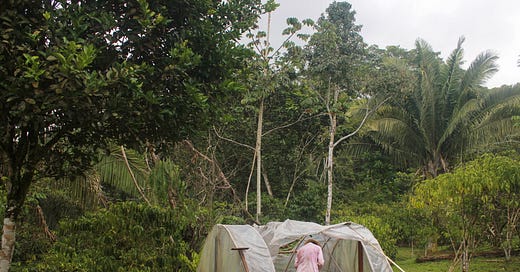



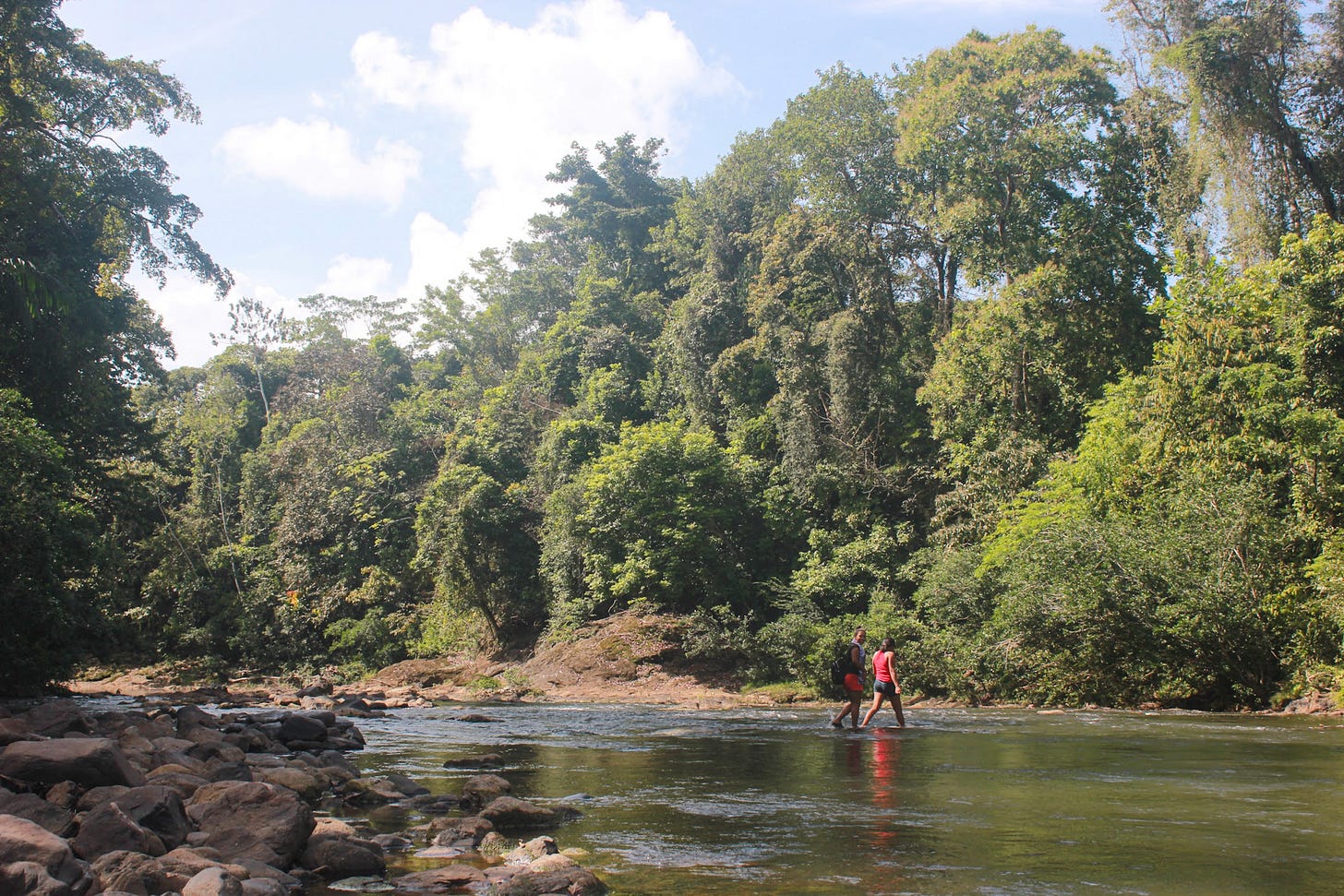
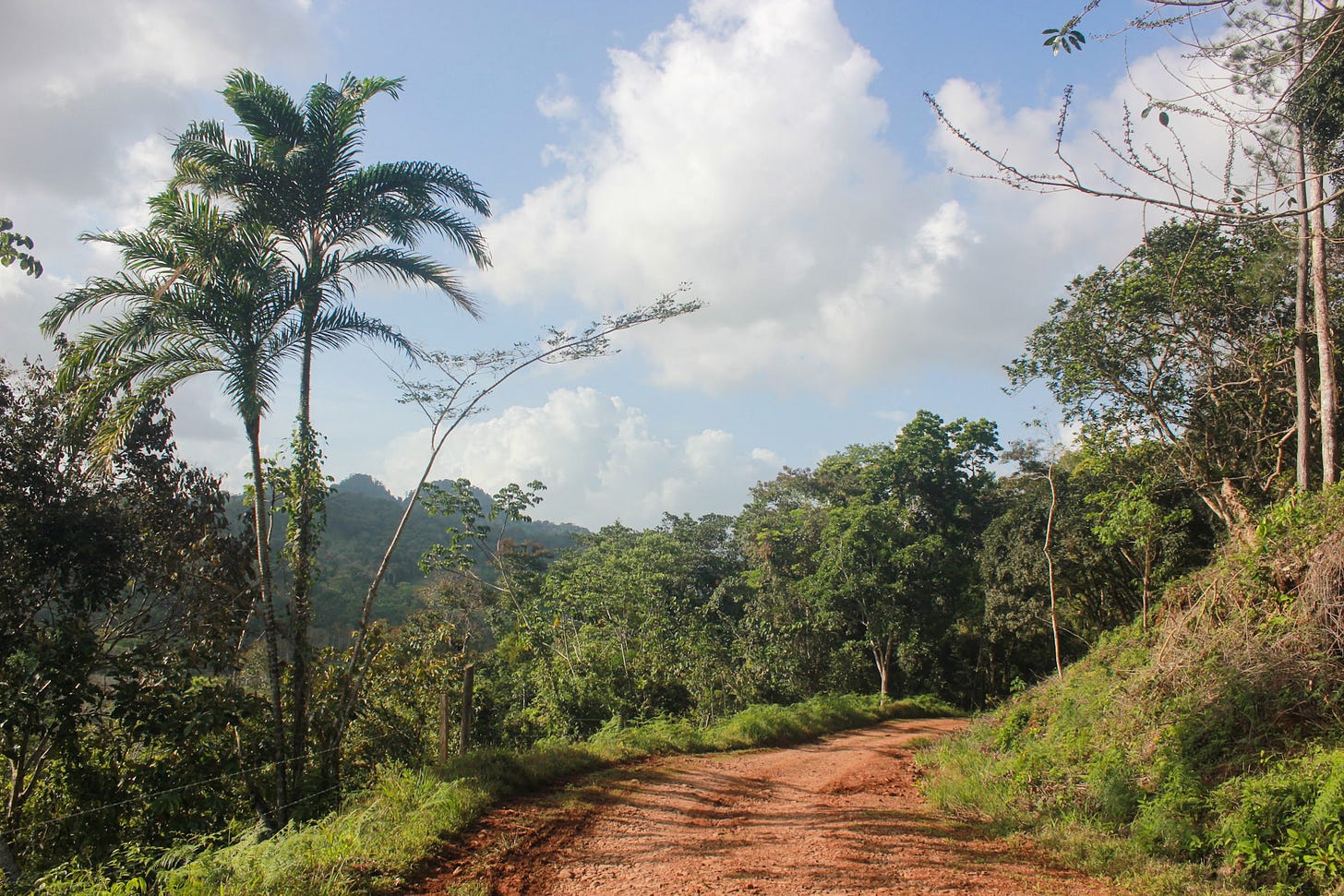
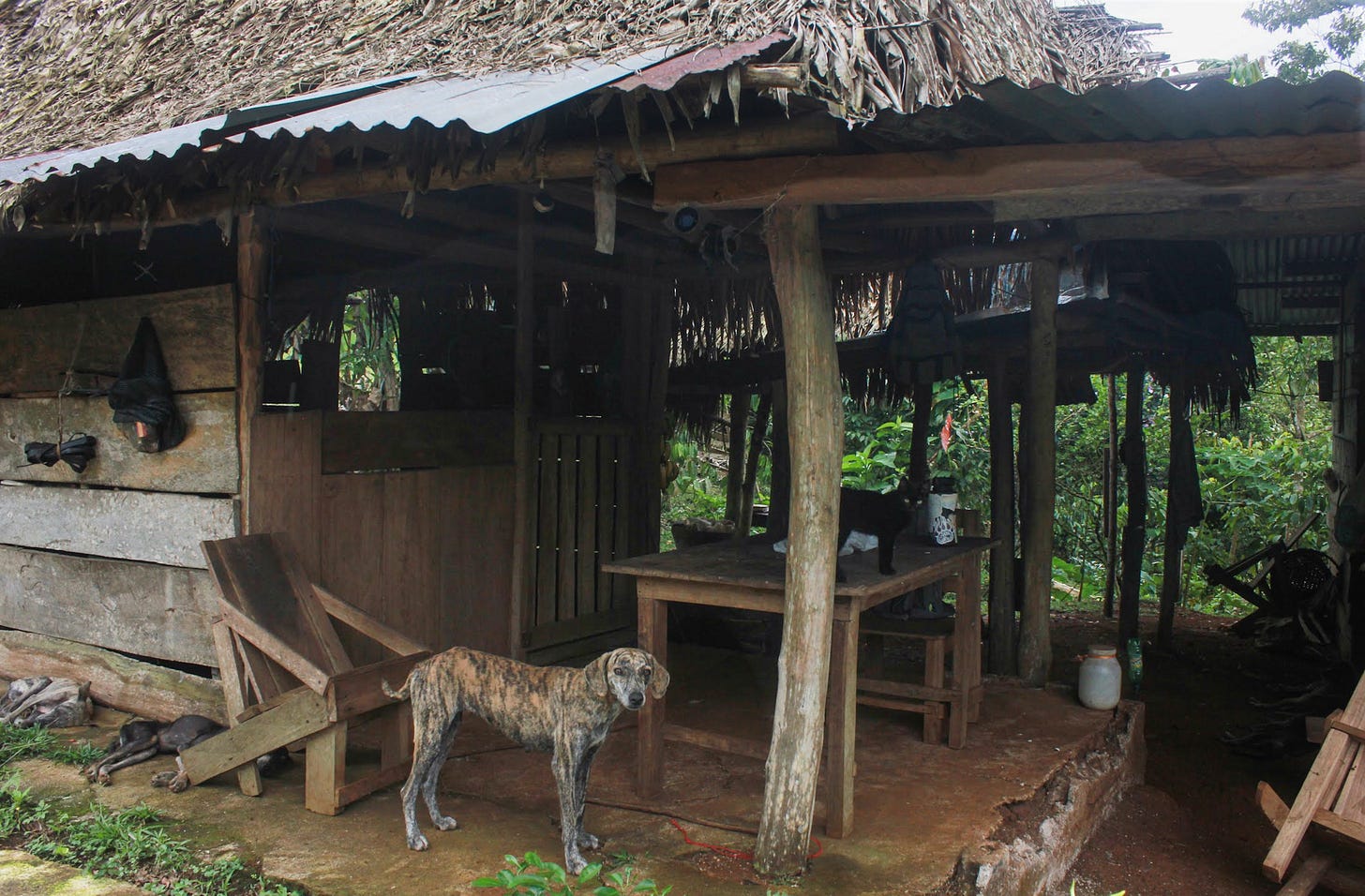
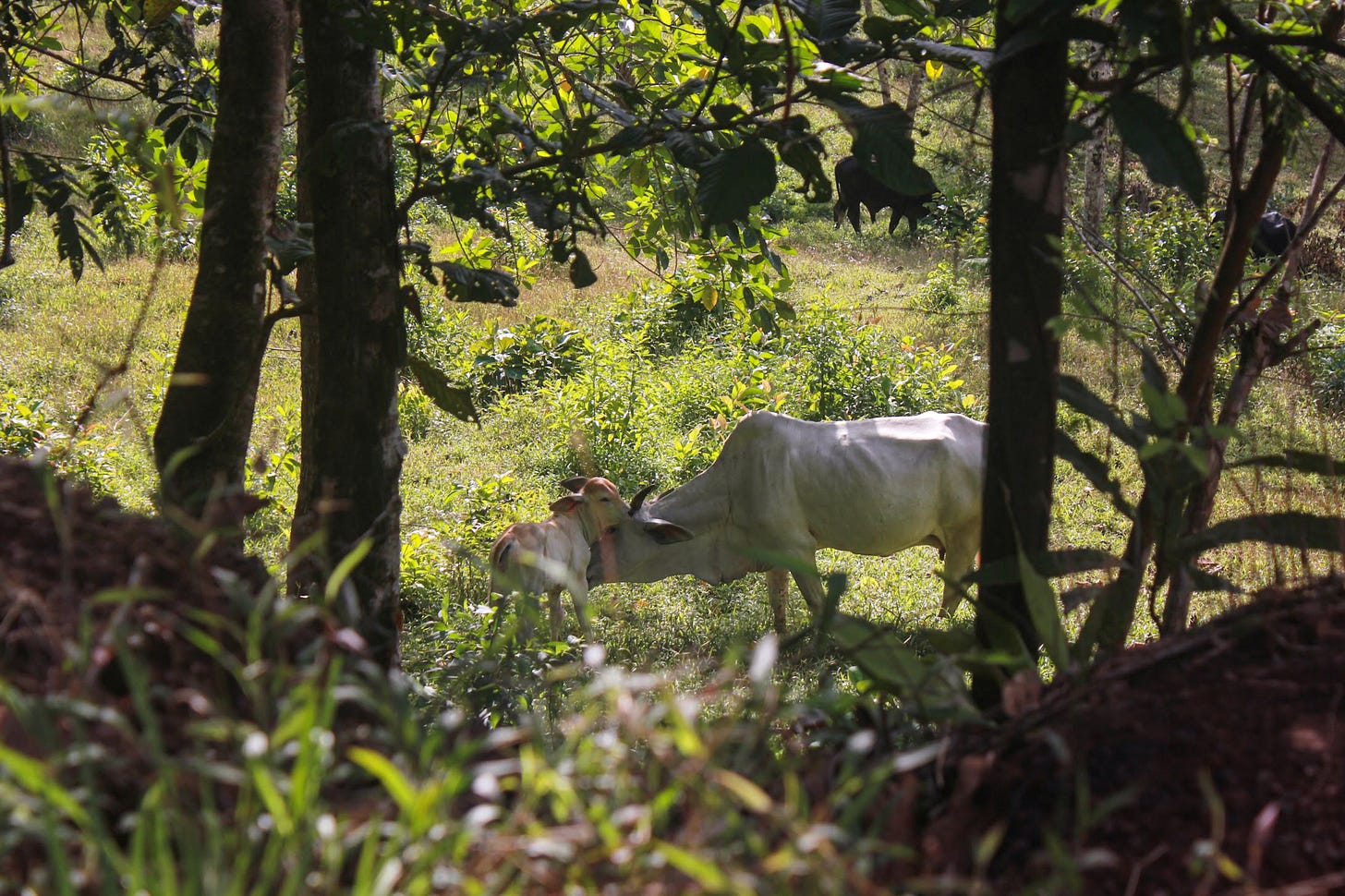
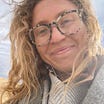
This essay dropped me right onto the river's edge, and for a moment, I could also smell the coffee berry flowers and hear the toucans.
I grew up in a place of Meadows, horse drawn farm implements, forest, saltmarsh and wildflowers. Now, it only exists in my memory.